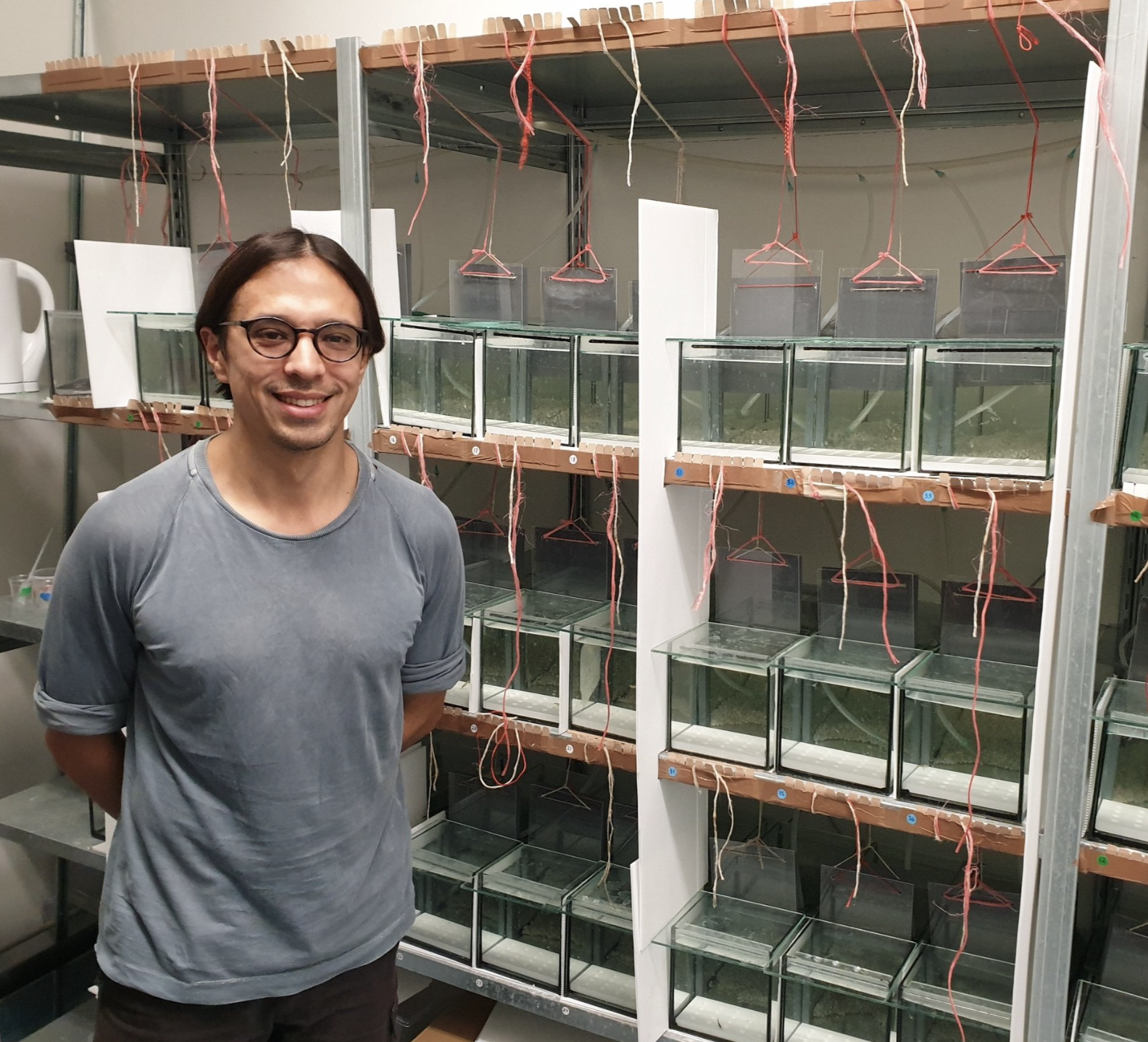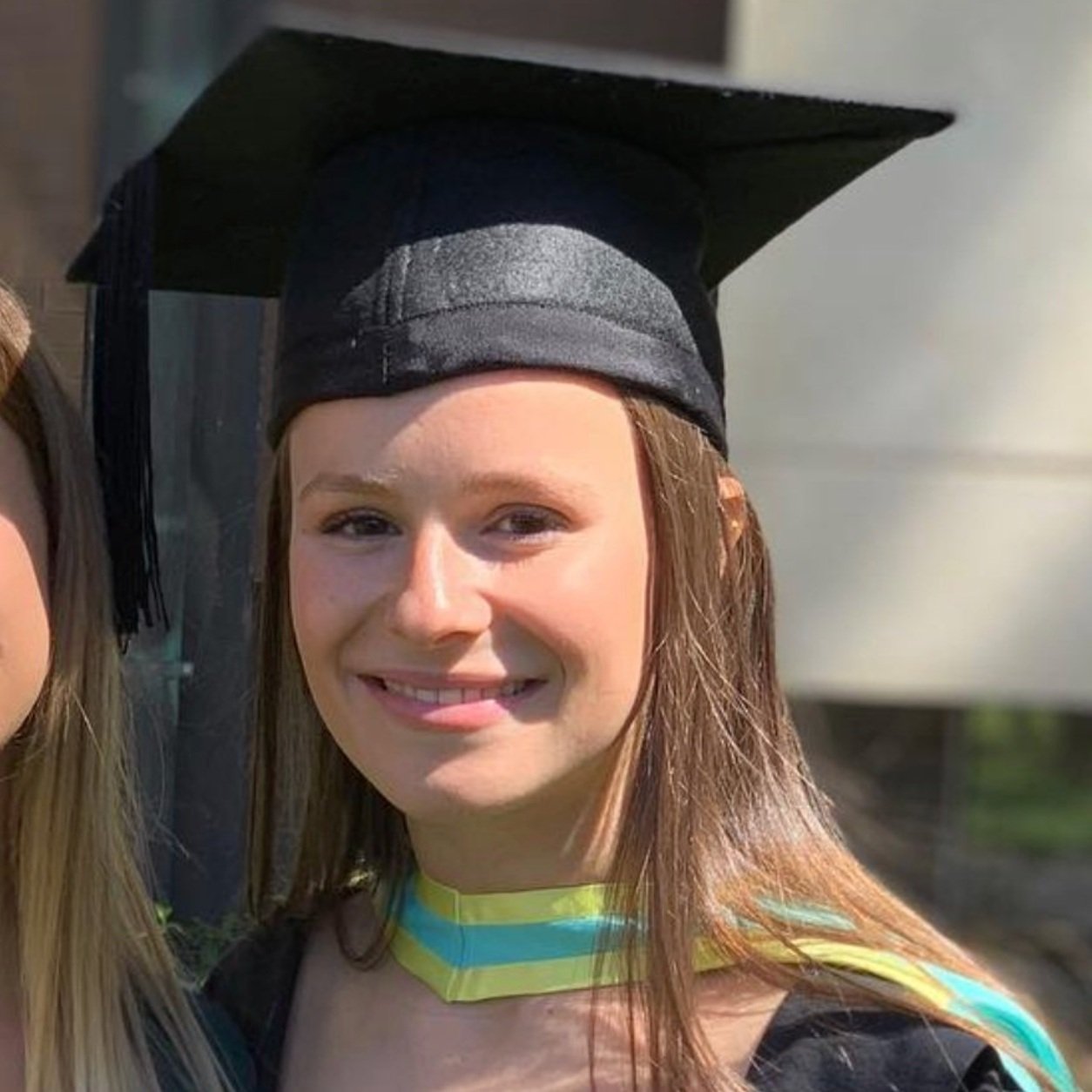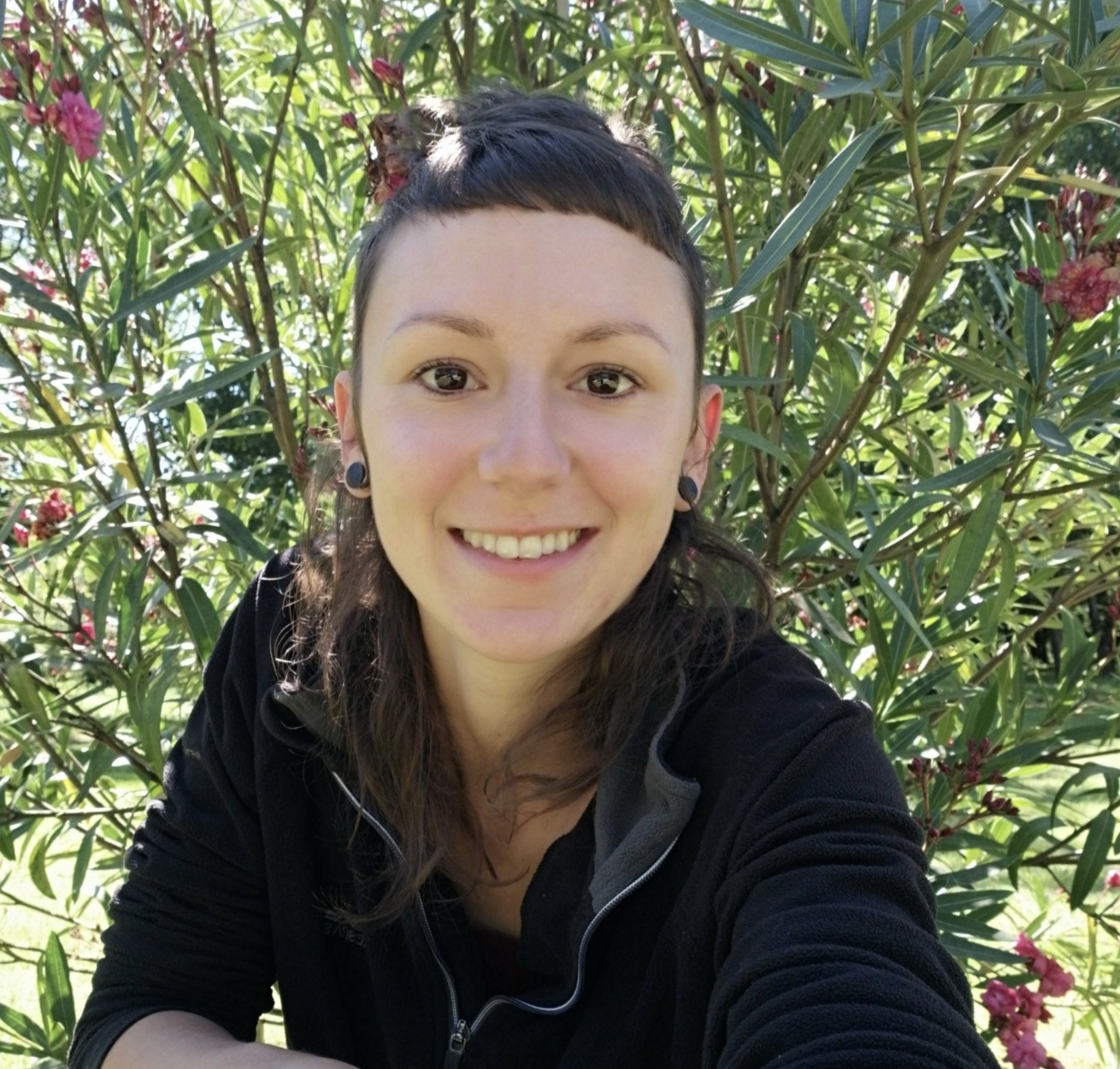People
Current lab members
PI
Asst. Prof. Michael Bertram
The overarching aim of my research program is to understand how human-induced environmental change impacts ecological and evolutionary processes in wildlife populations. I am passionate about increasing the quality and environmental realism of research in the rapidly growing field of behavioural ecotoxicology, including by harnessing cutting-edge technologies and novel experimental approaches. This integrative approach is crucial given that my ultimate goal is to drive the use of behavioural data in risk assessment and regulation, which is currently severely lacking, in order to safeguard natural environments from chemical pollution. In addition to chemical pollution research, I also work across a number of neighbouring fields, including investigating the impacts of various other forms of human-induced environmental change, such as climate change, noise pollution, and invasive species. I am also involved in a number of ongoing projects leveraging high-throughput wildlife tracking technologies such as acoustic telemetry to open novel research frontiers in biology and ecology. Further, I have a broad interest in promoting open, reliable, and transparent science practices. For more information on my research interests, visit the pages on my research and publications.
Postdoctoral Researchers
Dr Eli Thoré (2023–present)
Swedish University of Agricultural Sciences, Sweden
Dr Thoré’s postdoctoral project involves investigating potential interactions between pharmaceutical pollution and climate change on wild fish populations. More specifically, he aims to identify how exposure to benzodiazepines (e.g. oxazepam, temazepam) affect foraging, growth-rate, and migration behaviour of fish (e.g. brown trout, Salmo trutta) under ambient and future climate scenarios. He also works on a wide range of other research projects, including investigating potential brain size-mediated impacts of contaminants on fish, and using acoustic telemetry to study the impacts of chemical pollution on free-roaming wild fish populations. Eli is co-supervised with Prof. Tomas Brodin (Swedish University of Agricultural Sciences, Sweden). For more information on Eli’s research, visit his website here.
Dr Jack Brand (2023–present)
Swedish University of Agricultural Sciences, Sweden
Jack’s postdoctoral project primarily involves using advanced analytical approaches to interpret data collected in large-scale acoustic telemetry studies on the effects of chemical pollution on aquatic species. This includes, for example, high-resolution positioning of contaminated fish populations in lakes and ponds, as well as tracking of whole-river-to-sea migration in species such as Atlantic salmon (Salmo salar). Jack is also involved in a variety of other projects, such as investigating whether impacts of exposure to pharmaceutical pollutants are dependent on brain size in fish, and studies testing the relationship between pre- and post-copulatory reproductive traits in aquatic species. Jack is co-supervised with Prof. Tomas Brodin (Swedish University of Agricultural Sciences, Sweden).
PhD students
Kate Fergusson (2021–present)
Monash University, Australia
For her PhD project, Kate is examining how contamination of the environment with micropollutants (e.g. pharmaceutical drugs, endocrine-disrupting chemicals) can influence complex traits and behaviours in wildlife. This project has a particular emphasis on studying potential effects of contaminant exposure on cognition and learning in aquatic wildlife, as well as investigating ways to better incorporate open and transparent research practices into the field of behavioural ecotoxicology. Kate is co-supervised with Prof. Bob Wong (Monash University, Australia) and Dr Jake Martin (Swedish University of Agricultural Sciences, Sweden).
Jack Manera (2022–present)
Monash University, Australia
For his PhD project, Jack is investigating the effects of exposure to micropollutants, including pharmaceutical drugs, on complex behavioural processes in aquatic wildlife. In particular, Jack is examining the impacts of pollution exposure on higher-order behaviours, such as the collective behaviour of animal groups, as well as behaviours related to learning and cognition. Jack is also involved in a number of other collaborations, including studies investigating the impacts of anthropogenic noise on animal behaviour. Jack is co-supervised with Prof. Bob Wong (Monash University, Australia).
Elly Moore (2023–present)
Monash University, Australia
For her PhD project, Elly is researching potential effects of exposure to psychiatric pharmaceutical pollutants on the behaviour, cognition, and neuroanatomy of fish. In particular, Elly is interested in testing whether exposure to ‘emerging’ forms of neuroactive pollution, including psychoactive pharmaceuticals and neurotoxic insecticides, might alter higher-level cognitive processes in wildlife. Elly is co-supervised with Prof. Bob Wong (Monash University, Australia).
Manon Verneuil (2024)
Le Mans University, France
Manon’s 2-month research internship involves assisting with experiments investigating whether and how exposure to emerging pharmaceutical contaminants impacts learning and cognition in fish. She is also helping with research testing potential impacts of exposure to antibiotic medications on the gut microbiome of fish, and how these changes might translate to flow-on effects on behaviour.
Alumni
Sarah Rossi (2023)
Swedish University of Agricultural Sciences, Sweden
Sarah's Master’s thesis examined the potential ecological trap created by wastewater effluent outflow. She investigated whether wastewater effluents affect the behaviour—specifically habitat choice—of aquatic invertebrates such as damselflies, dragonflies, and caddisfly larvae, as well as Corixidae and crayfish. Sarah's work aimed to reveal the broad impacts of chemical pollution and habitat alterations. By identifying whether these organisms are making maladaptive choices due to misleading cues, assessments of the potential disruption to exposed populations and the overall balance of aquatic ecosystems can be made. Sarah was co-supervised with Asst. Prof. Erin McCallum (Swedish University of Agricultural Sciences, Sweden).
Marie Gellé (2023)
Jean Monnet University, France
Marie’s Master’s project involved investigating potential brain size-mediated impacts of micropollutant exposure on key traits in the guppy (Poecilia reticulata). Marie’s project also included a 2-month research visit to Australia, during which she analysed data for this project using specialised animal-tracking software. Marie was co-supervised with Assoc. Prof. Florence Levréro (Jean Monnet University, France) and Prof. Bob Wong (Monash University, Australia).
Sebastian Vásquez Nilsson (2022)
Stockholm University, Sweden
Sebastian’s Master’s project involved examining potential effects of exposure to a common psychoactive pharmaceutical pollutant on executive function in the guppy (Poecilia reticulata). Addressing this question provides a better understanding of whether and how fish cognition is affected by psychoactive drugs and what alterations could be expected in wild fish populations. Sebastian was co-supervised with Prof. Niclas Kolm (Stockholm University) and Dr Jake Martin (Swedish University of Agricultural Sciences, Sweden).
Rachel Mason (2019)
Monash University, Australia
Rachel’s Honours project examined the impacts of the antidepressant pollutant fluoxetine on social behaviour of fish under predation threat. Rachel was co-supervised with Prof. Bob Wong (Monash University, Australia).
Andrew Todd-Weckmann (2019)
Monash University, Australia
Andrew’s Honours project investigated the impacts of pharmaceutical pollution on female mate choice in guppies (Poecilia reticulata). Andrew was co-supervised with Prof. Bob Wong (Monash University, Australia).
Oscar Formoso (2018–2019)
Monash University, Australia
Oscar’s Honours project examined the effects of multi-generational exposure to the pharmaceutical pollutant fluoxetine on male reproductive traits in the guppy (Poecilia reticulata). Oscar was co-supervised with Prof. Bob Wong (Monash University, Australia).
Zhen (Hung) Tan (2018)
Monash University, Australia
Hung’s Honours project tested whether and how environmentally relevant exposure to the antidepressant fluoxetine effected behavioural responses to predation in the guppy (Poecilia reticulata). Hung was co-supervised with Prof. Bob Wong (Monash University, Australia).
Sarah Wiles (2018)
Monash University, Australia
Sarah’s Honours project investigated the impacts of fluoxetine exposure and temperature stress on reproductive behaviours and activity levels in guppies (Poecilia reticulata). Sarah was co-supervised with Prof. Bob Wong (Monash University, Australia).
Steph Hannington (2017–2018)
Monash University, Australia
Steph’s Honours project was focused on understanding the effects of chronic exposure to the antidepressant fluoxetine on risk-taking behaviour and physiology in the guppy (Poecilia reticulata). Steph was co-supervised with Prof. Bob Wong (Monash University, Australia) and Dr Minna Saaristo (Environment Protection Authority Victoria, Australia).
James Tanner (2017–2018)
Monash University, Australia
Jimmy’s Honours project investigated the impacts of the pharmaceutical pollutant fluoxetine on anxiety-related behaviours and physiology in the guppy (Poecilia reticulata). Jimmy was co-supervised with Prof. Bob Wong (Monash University, Australia) and Dr Minna Saaristo (Environment Protection Authority Victoria, Australia).
Jack Fursdon (2016–2017)
Monash University, Australia
Jack’s Honours project examined the influences of exposure to the antidepressant fluoxetine on reproductive behaviour under predation risk in the guppy (Poecilia reticulata). Jack was co-supervised with Prof. Bob Wong (Monash University, Australia).
Tiarne Ecker (2015–2016)
Monash University, Australia
Tiarne’s Honours project involved testing the effects of exposure to the antidepressant fluoxetine on mechanisms of sexual selection in eastern mosquitofish (Gambusia holbrooki). Tiarne was co-supervised with Prof. Bob Wong (Monash University, Australia) and Dr Minna Saaristo (Environment Protection Authority Victoria, Australia).
Jake Martin (2015)
Monash University, Australia
Jake’s Honours project investigated the impacts of the antidepressant pharmaceutical fluoxetine on anti-predator behaviour in eastern mosquitofish (Gambusia holbrooki). Jake was co-supervised with Prof. Bob Wong (Monash University, Australia) and Dr Minna Saaristo (Environment Protection Authority Victoria, Australia). For more information about Jake’s research, visit his website here.
Julia Walsdorf (2023)
University of Illinois Urbana-Champaign, United States
Julia’s 3-month internship involved helping with ecotoxicological experiments investigating the impacts of antibiotic exposure on the gut microbiome of fish, and how these changes might translate to flow-on effects on behaviour. She also assisted with a project examining the impacts of antidepressant exposure on behavioural plasticity in fish. Julia was co-supervised with Prof. Niclas Kolm (Stockholm University, Sweden) and Dr Jake Martin (Swedish University of Agricultural Sciences, Sweden).
Sarah Oddoux (2023)
UFR Sciences et Techniques, France
Sarah’s 3-month internship involved assisting with ecotoxicological experiments investigating the impacts of antibiotic exposure on the gut microbiome of fish, and how these changes might translate to flow-on effects on behaviour. Sarah was co-supervised with Prof. Niclas Kolm (Stockholm University, Sweden) and Dr Jake Martin (Swedish University of Agricultural Sciences, Sweden).
Jack Manera (2022)
Monash University, Australia
Jack’s 3-month internship involved helping to conduct a range of ecotoxicological experiments testing whether and how exposure to various micropollutants disrupts group formation, collective behaviour, and anti-predator responses in fish. Jack was co-supervised with Prof. Bob Wong (Monash University, Australia) and Prof. Niclas Kolm (Stockholm University, Sweden).
Sebastian Vásquez Nilsson (2022)
Stockholm University, Sweden
Sebastian’s 2-month internship involved assisting with experiments investigating potential brain size-mediated impacts of micropollutant exposure on ecologically and evolutionarily important traits in the guppy (Poecilia reticulata). Sebastian was co-supervised with Prof. Niclas Kolm (Stockholm University, Sweden) and Dr Jake Martin (Swedish University of Agricultural Sciences, Sweden).
Kehinde Olajide (2022)
University of Bordeaux, France, and University of Basque Country, Spain
Kehinde’s 2-month internship involved assisting with experiments investigating potential brain size-mediated impacts of micropollutant exposure on ecologically and evolutionarily important traits in the guppy (Poecilia reticulata). Kehinde was co-supervised with Prof. Niclas Kolm (Stockholm University, Sweden) and Dr Jake Martin (Swedish University of Agricultural Sciences, Sweden).
Sarah Rossi (2022)
RheinMain University of Applied Sciences, Germany
Sarah’s 3-week internship included helping with experiments investigating potential brain size-mediated impacts of micropollutant exposure on ecologically and evolutionarily important traits in the guppy (Poecilia reticulata). Sarah was co-supervised with Prof. Niclas Kolm (Stockholm University, Sweden) and Dr Jake Martin (Swedish University of Agricultural Sciences, Sweden).
Marie Gellé (2022)
University of Poitiers, France
Marie’s 2-month internship comprised assisting with experiments investigating potential brain size-mediated impacts of micropollutant exposure on ecologically and evolutionarily important traits in the guppy (Poecilia reticulata). Marie was co-supervised with Prof. Niclas Kolm (Stockholm University, Sweden) and Dr Jake Martin (Swedish University of Agricultural Sciences, Sweden).
Jerem Terud (2018)
National Veterinary School of Toulouse, France
Jerem’s 2-month internship involved assisting with experiments investigating the behavioural effects of psychoactive pharmaceutical exposure on European perch (Perca fluviatilis) in a multi-stressor environment. Jerem was co-supervised with Prof. Tomas Brodin (Swedish University of Agricultural Sciences, Sweden).
Justin Morrissy (2017)
Monash University, Australia
Justin’s 1-month internship involved carrying out experiments examining the impacts of endocrine-disrupting chemical pollutants from agriculture on the behaviour and ecology of freshwater fish species.




























